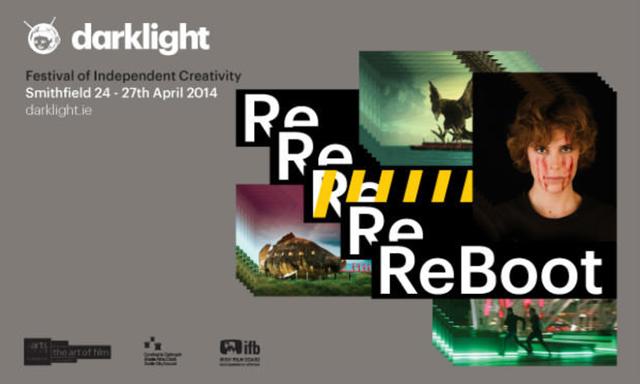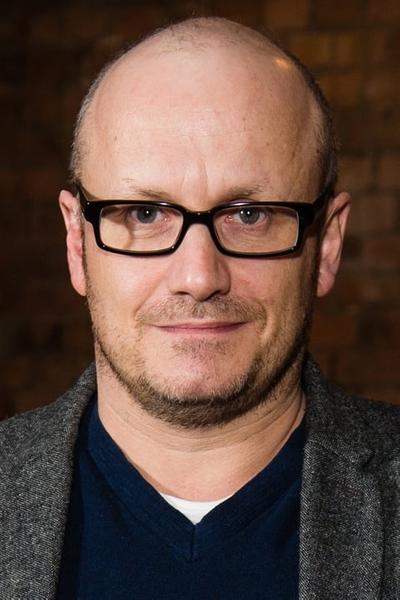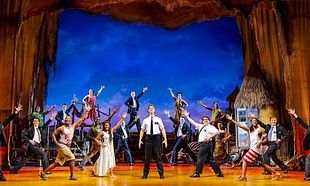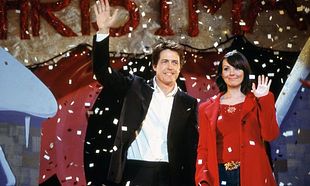Fifteen years since its first foray into Ireland’s arts festival scene, Darklight is back with a three-day programme celebrating independent creativity in digital media and film. Phil Cummins caught up with both festival director Nicky Gogan and Darklight board member / Le Cool Dublin publisher Michael McDermott to talk about the festival’s origins, this year’s programme and those must- see events.
“Darklight has been a stalwart of the festival scene for fifteen years, so in a way it’s a survivor of the festival scene in Ireland, but it’s still also one of those ahead- of- the- curve festivals.”
Buzzing with excitement at the launch of this year’s programme of events in Smithfield’s Block T- described as Darklight’s HQ for the duration of the festival - Le Cool Dublin publisher Michael McDermott, a fresh appointment to the board of Darklight, is keenly aware of how far both Darklight and the Irish film industry have travelled since the festival’s inception, fifteen years ago.
“Darklight started at a time in the late 90’s when people in Ireland didn’t yet fully understand what exactly “digital” meant. Here, in Smithfield, we’re just around the corner from Brown Bag Films, which, in 2014, is now one of the leading animation studios in Europe and a studio that employs 250 people. So I think that Darklight has shadowed and supported the growth of digital industries in Ireland in terms supporting creativity, technology and the intersection between technology and film. It’s always been one of the more experimental and ambitious festivals out there. We had a hiatus, last year, and the whole idea around the ‘Reboot’ element of this year’s festival is to engage with a new, young, fresh audience in order to maintain Darklight’s relevancy.”
And a reboot it is: this year’s edition of the festival certainly feels bigger, stronger and faster, anchored as it is in five of Smithfield’s cultural focal points: Smithfield Square, Block T, The Lighthouse cinema, The Generator hostel and Third Space café.
The programme, too, mixes the old and the new: Martin Scorsese’s 1990 classic Goodfellas receives a screening in the festival’s 100 seat Cinemobile on Smithfield Square, while more cutting edge work, such as New Irish Experimental Docs, will also be screened in Darklight’s Cinemobile.

Certainly, the genesis of the festival and its origins are fresh in the mind of Nicky Gogan, Artistic Director and co- founder of Darklight.
“My friend Susie and I founded the festival in ’99 and it started out as a digital festival at a time when we were paying attention to what festivals like Resfest and Onedotzero in London were doing. Eventually, we thought “Why can’t we do that over here?
“The focus of the festival is different every year: sometimes it’s more U.S. focused, other years the work that we feature is more European focused. It really depends on what exciting creative events are happening around the world, which cities are blossoming with new and exciting work that features the intersection between gallery work and feature work.
“The central points of the festival, though, are Digital Storytelling and What’s Up Doc. The discussion of the ideas and the medium are just as important as what’s up on the screen, so there’ll be two roundtables on the Friday and the Saturday that are free, where all the filmmakers that will be in Smithfield over the duration of the festival will participate.”
Of course, that intersection between experimental gallery work and feature films couldn’t come at a better time; this year, 12 Years A Slave director Steve McQueen, who won the Turner Prize in 1999, netted this year’s Best Picture Oscar at the Academy Awards, sealing his reputation as one of the most exciting feature filmmakers in the current era.
“Absolutely”, agrees McDermott. “And I think another good example of that transition in this year’s programme is Forsyth & Pollard, Darklight 2014’s Artists in Focus. Forsyth & Pollard started out in the experimental, installation sphere and have now crossed over into feature work. They directed 20,000 Days on Earth, the Nick Cave documentary that premiered, recently, at Sundance.
“I think that the value of installation work is more appreciated, now, in terms of the aesthetics and the ideas that installation work can bring to feature films. So Darklight, I think, is great at blurring boundaries between those two spheres of film and creativity. I also think that by the time 20,000 Days on Earth is released in late summer / autumn of this year, you’ll be reading about the Nick Cave documentary in The Irish Times, The Guardian, The Sunday Times. Darklight has Forsyth & Pollard discussing 20,000 Days on Earth and showing excerpts from 20,000 Days on Earth several months before the mainstream media, so in that sense the festival is, again, ahead of the curve.”
Closer to home, of course, is director Lenny Abrahamson, who through Garage, What Richard Did and the upcoming Frank has gained a reputation as one of the most exciting filmmakers to emerge from these shores for quite some time. The Dubliner is also on the board of Darklight and Gogan’s praise of the What Richard Did director couldn’t be higher.

“Lenny’s just a really creative and generous man. He’s a great touchstone when it comes to programming, but he also has an international focus towards discovering new film. He’s always travelling with his work and he’s always discovering new films and new filmmakers. From a programming perspective, he’s great and he’s the only active film maker on the board. Crucially, he’s also very industry focused, so he has a great balance between the international outlook and creative side of the festival, but he also has a focus on the Irish industry side of it.”
Despite Lenny Abrahamson’s continued success in the medium, many young, aspiring filmmakers have, no doubt, been forced to leave our shores in search of opportunities abroad, impacting on the amount of home grown talent in the Irish film industry. Despite these realities, Gogan is optimistic for the future of Irish filmmaking.
“During Darklight 2012, we showed exclusively Irish films - milestones in terms of the DIY nature of the films. We showed no films that had a logo attached. It was amazing to see the amount of collectives, the amount of groups that are coming together to make films in a DIY, home grown fashion. Now, two years on, a lot of those filmmakers have garnered awards and acclaim, so that’s great; it’s great that there’s still a strong, grass roots of filmmakers growing and blossoming.
“Obviously, emigration has meant that a lot of young, fresh, talented filmmakers are leaving the island. It’s terribly sad and upsetting and there could very well be a lost generation of filmmakers. But I was part of that too: during the early - mid 90’s, I went to the U.S. and it was a great experience. My hope is that those who leave will learn new skills, work in different areas and then come home and apply all of those skills and experience that they’ve learned abroad. It’s important to keep that youthful energy in the industry.
“I’m very much a glass half-full person, so I think the future is bright for the industry and bright for for Darklight.”
Darklight runs from 24 April - 27 April in Smithfield. For the full programme of events, visit darklight.ie. For tickets, visit entertainment.ie/darklight.
















































































